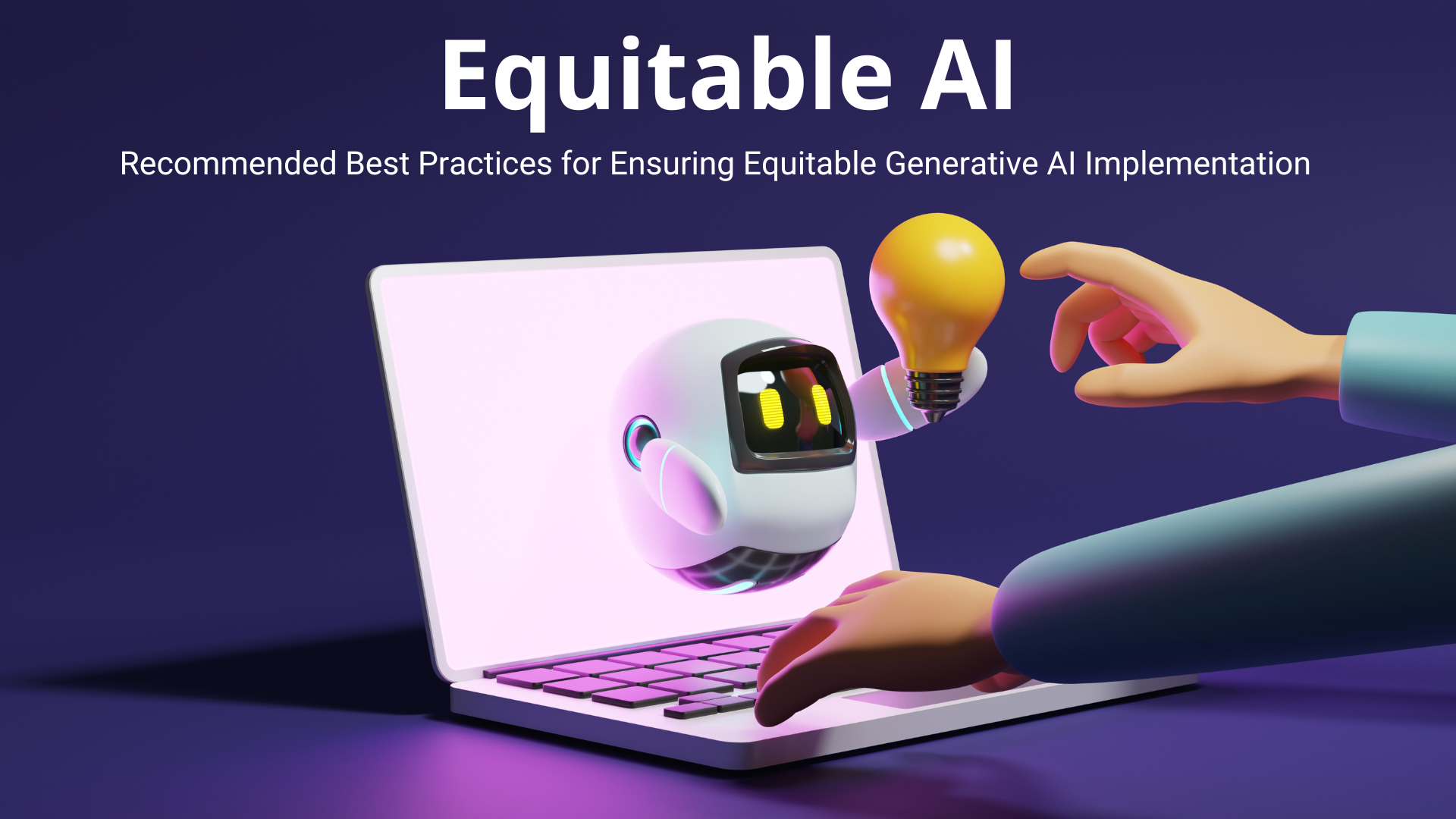Insights
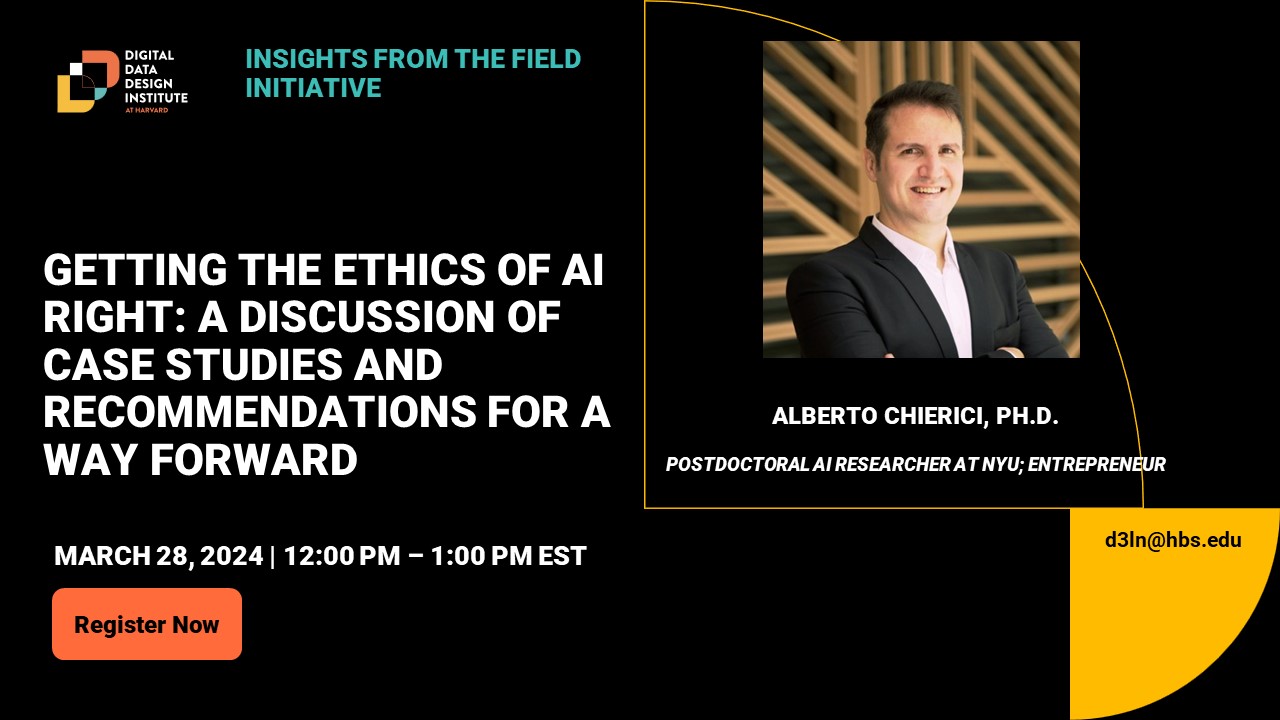
Insight: Helpful Thoughts and Recommendations on AI and Ethics
Although artificial intelligence technology has been around for some time, current advancements in this space warrant more ethical approaches for developing and deploying AI systems to benefit a large portion of society. Artificial intelligence, generative AI in particular,has already shown immense potential to augment human capabilities. This potential, however, doesn’t seem to be evenly distributed. What’s worse, risks such as social and economic disparities are exacerbated by the uneven distribution of artificial intelligence, and are concentrated in specific regions based on demographic characteristics. It’s imperative to strive toward building a framework of transparency, fairness, and accountability around artificial intelligence on a global scale in order to mitigate this problem.
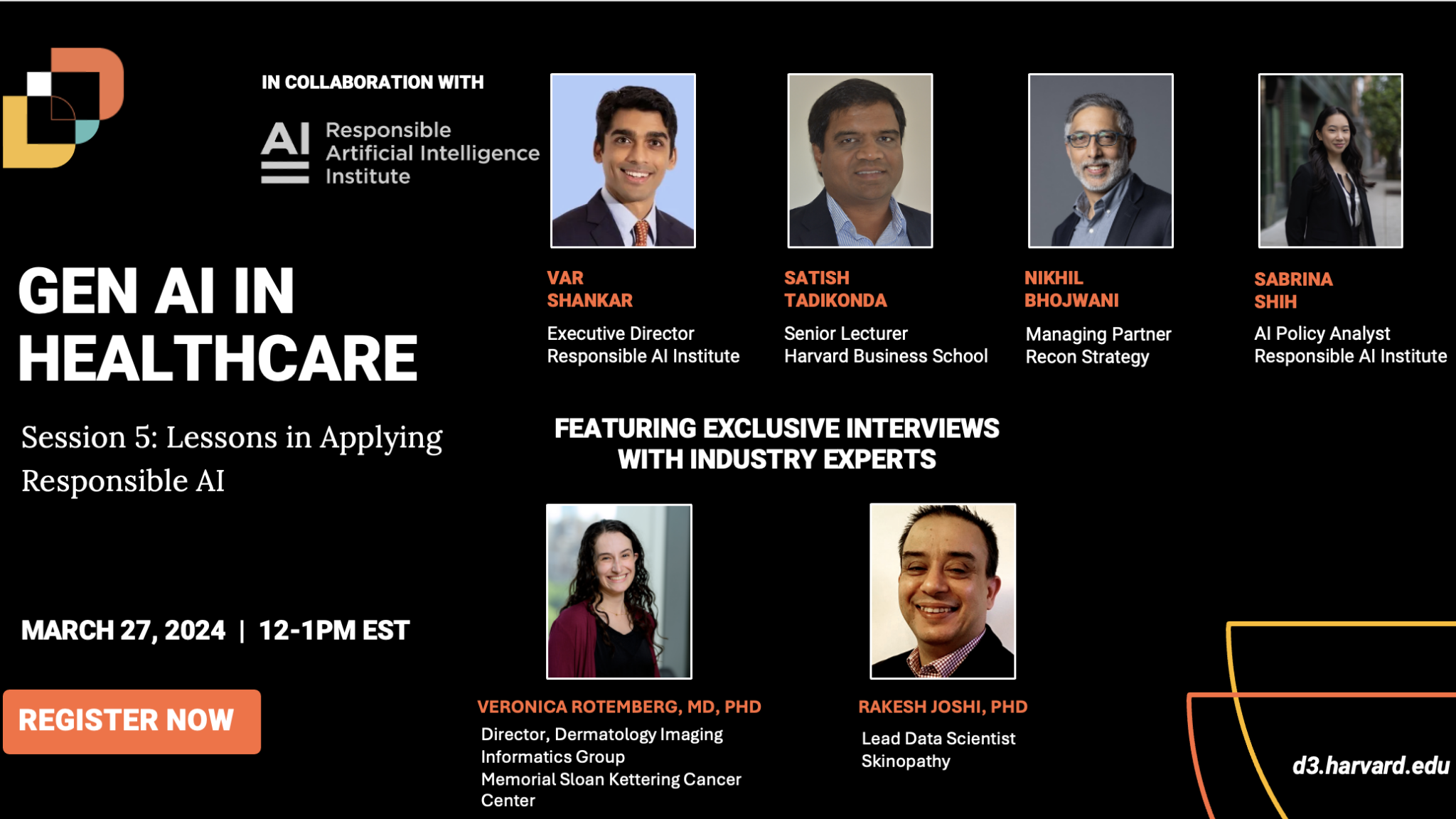
Lessons in Applying Responsible AI
Insights from the March 27th, 2024 capstone session on Gen AI applied use cases, risks, and responsibilities Recordings and articles from the Generative AI in Healthcare series can be found here. In the capstone session of the Generative AI in Healthcare series, Satish Tadikonda (HBS) spoke with Responsible AI Institute experts Manoj Saxena, Var Shankar, […]
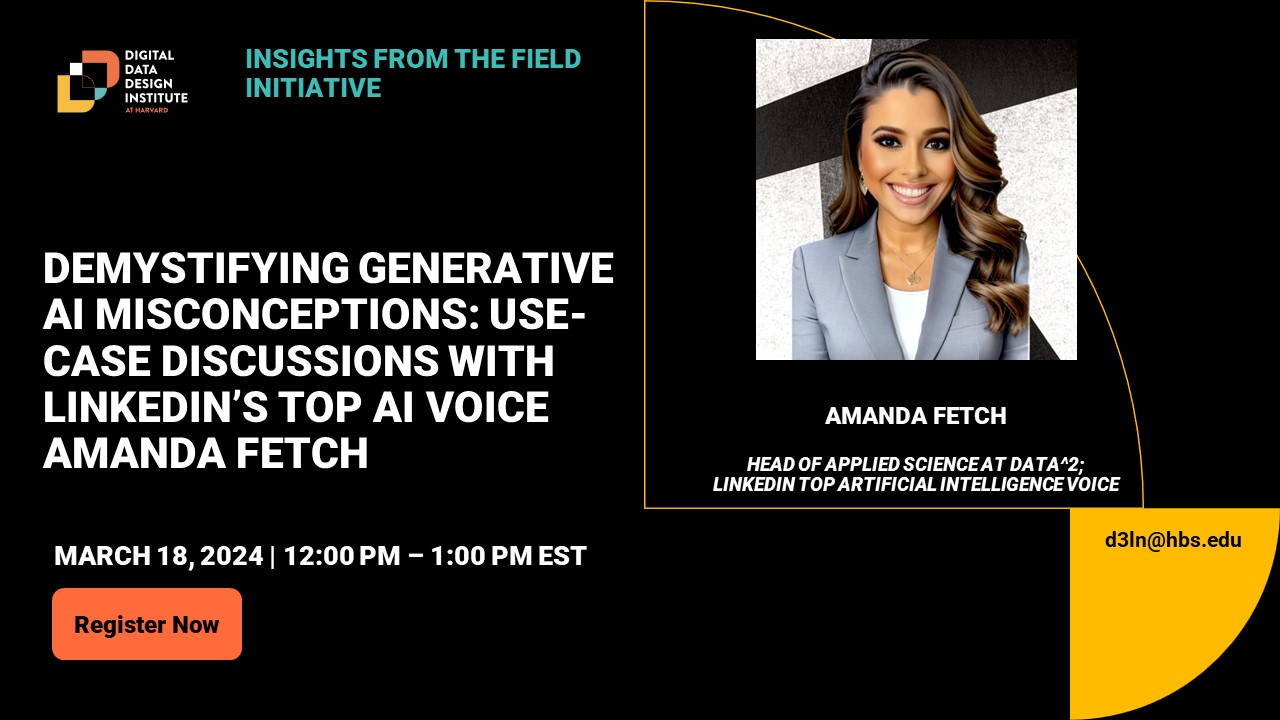
Insight: Common Generative AI Misconceptions and How to Demystify Them
Owing to the accelerated advancement in the field of generative AI technologies, it’s important to address misconceptions about what generative AI tools can and cannot do in order to maximize the benefits and minimize potential harms. In this “Ask me Anything” session, Amanda demystifies some of the most commonly held misconceptions about generative AI via discussions of real-world use cases. While responding to specific questions, Amanda highlights areas in which generative AI seems to thrive, while she also identifies notable shortcomings of the technology by drawing from her diverse and extensive experience as a digital transformation expert and a sought-after advisor to leading organizations in artificial intelligence and machine learning technologies.
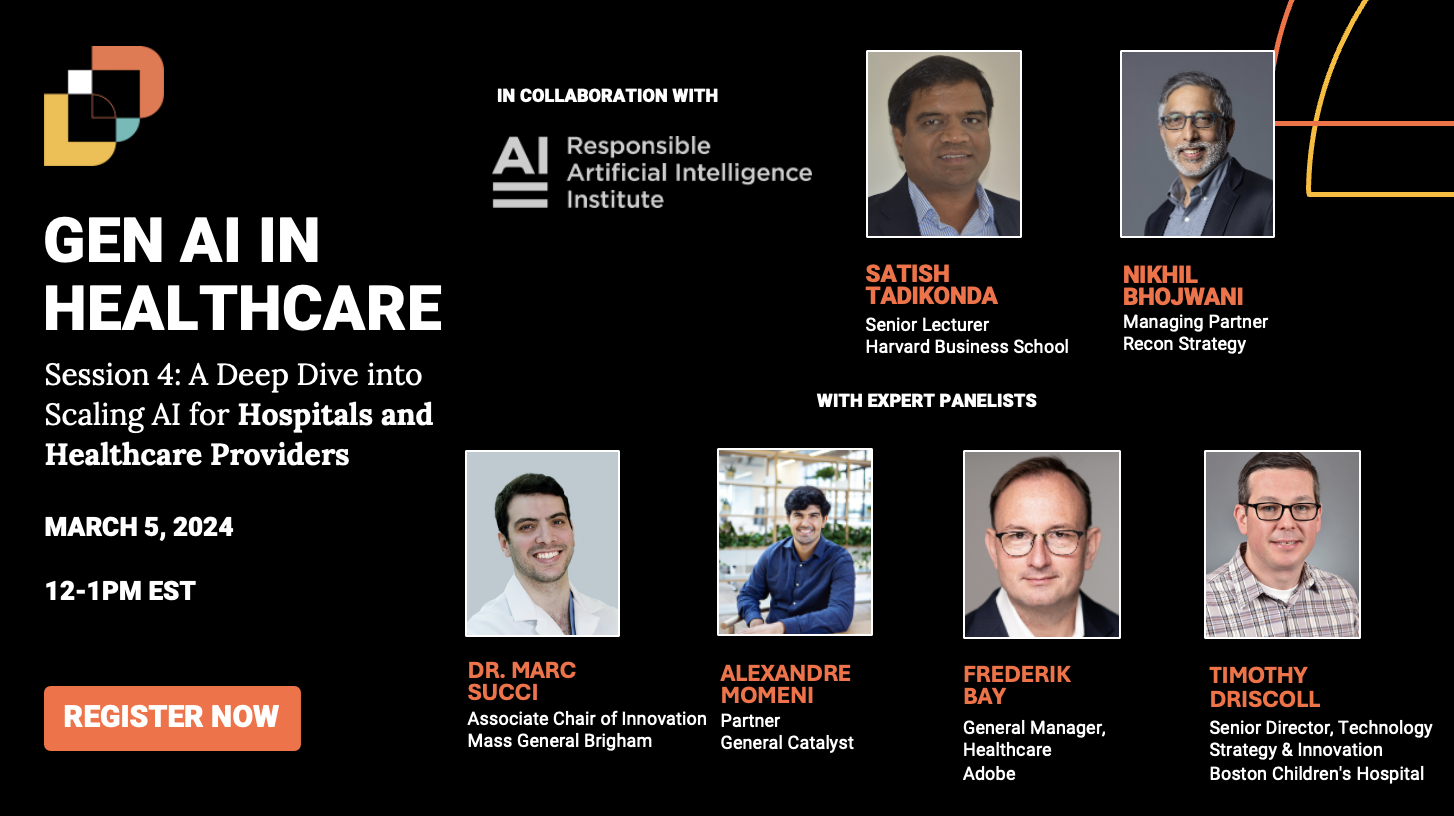
Scaling AI for Hospitals and Healthcare Providers
Insights from the March 5th, 2024 session on Gen AI use cases among Healthcare Providers Recordings from the Generative AI in Healthcare series can be found here – session 1, session 2, session 3, and session 4 In the fourth session of the Generative AI in Healthcare series, speakers Nikhil Bhojwani (Recon Strategy) and Satish […]
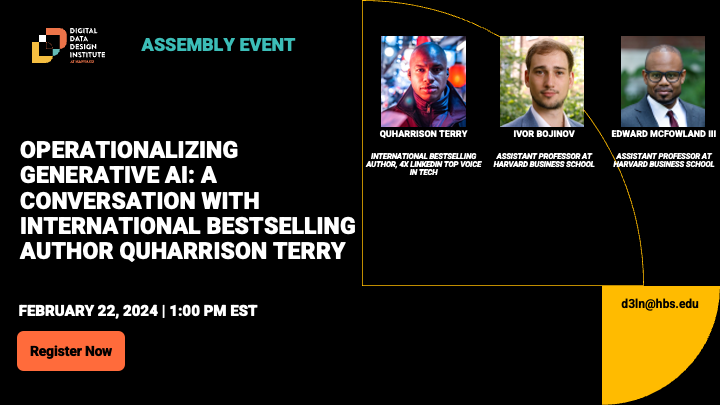
Insight: Integrating Generative AI Within Organizational Systems Comes With Challenges. Here Is Why Businesses Should Still Invest In This Space, Now More Than Ever
Following the abrupt uptick of generative AI innovation in the past couple of years, organizations have ramped up research and development efforts to meaningfully explore the value of integrating generative AI into organizational systems, with a particular interest in achieving operational hyper-efficiency. This effort requires a deep understanding of the steps towards operationalizing generative AI—from development to adoption to deployment—involving benefits and risks that must be carefully considered to augment performance and financial gains.

Scientific Talent Leaks Out of Funding Gaps
In the recent paper “Scientific Talent Leaks Out of Funding Gaps,” Wei Yang Tham from the Laboratory for Innovation Science at Harvard, along with Joseph Staudt and Bitsy Perlman of the US Census Bureau, and Stephanie Cheng of Edgeworth Economics, highlight the pivotal role of sustained funding in fostering the growth of future scientists.
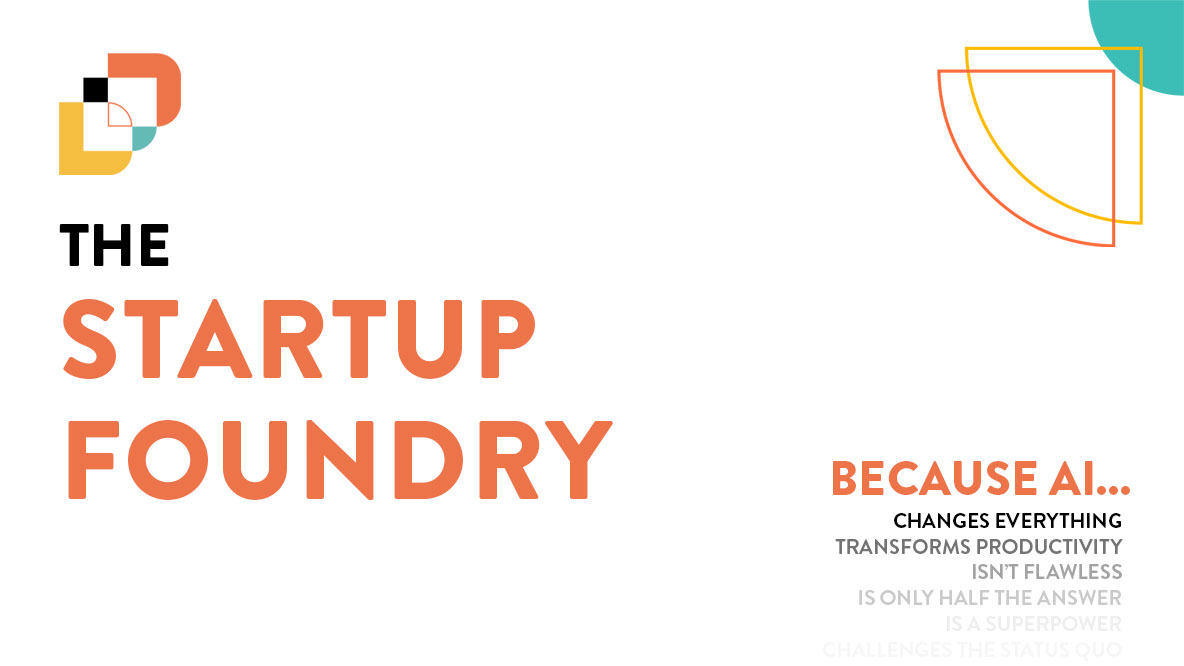
Startup Foundry Celebrates Pilot Cohort
The Digital Data Design Institute at Harvard’s Startup Foundry launched in 2023 to support and activate academic-led entrepreneurship at Harvard. Like all good entrepreneurs, it began with experiments, testing various formats, processes, and programs, piloting with early customers and tweaking to meet market needs while producing an MVP. As the first program of its kind […]

Insight: Here is What the World’s Leading Executives Have to Say About the Emerging Dual Space of Digital and Sustainable Economy
The digital and sustainability paths, previously considered to be parallel, are now highly intersecting and reinforcing each other, pointing towards a symbiotic relationship between technological advancement and environmental values. Showcasing this relationship, digital technologies are expected to contribute more than one-fifth, and up to one-third, of the GHG emissions reduction required by the Paris Agreement by 2030, illustrating their importance to sustainability transformation. As such, it’s important to understand the main drivers of this shift because of the implications this shift has on the global business landscape, including the demand for businesses to prioritize integrating digital innovation with sustainable practices. With the eco-digital economy including benefits that extend well beyond improvement in core business activities, it’s imperative for leaders to have a vision for digital transformation at their organizations going forward with a focus on harnessing the opportunities created by the emerging eco-digital economy including digital strategy, cybersecurity, sustainability, and more.
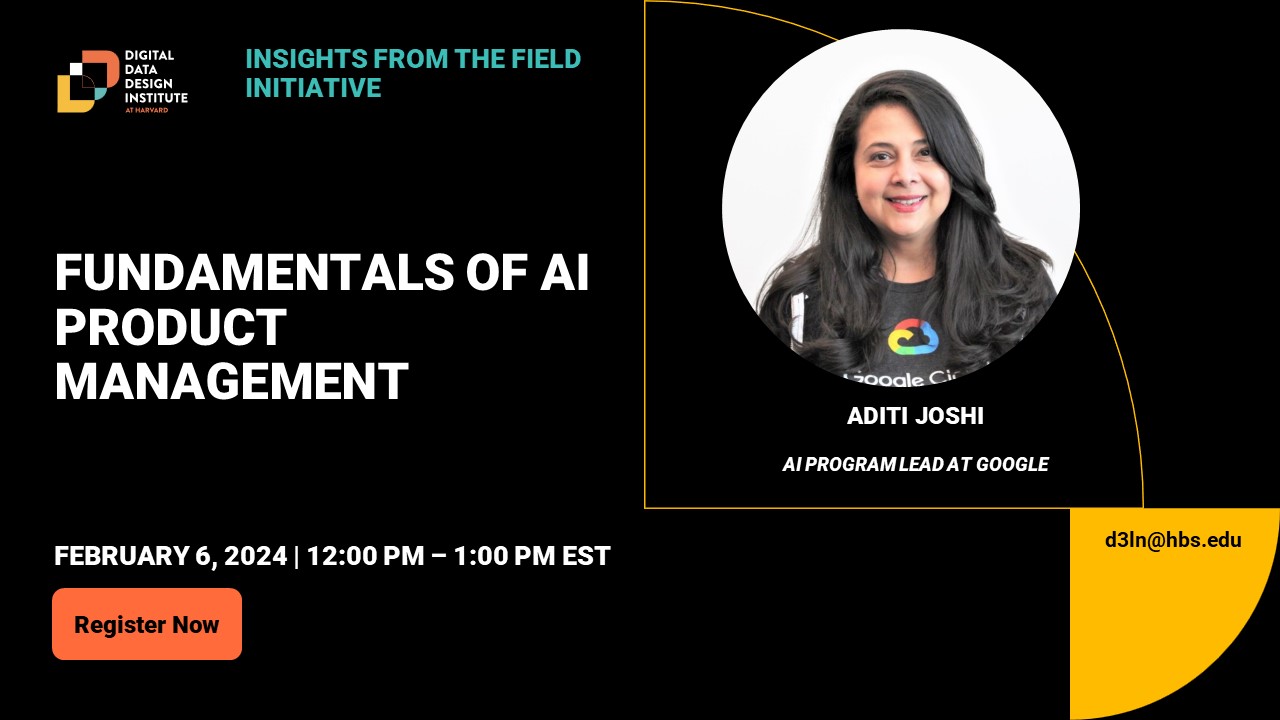
Insight: Concepts, Applications, and Opportunities in the New Age of AI Product Management
Understanding AI product management has become more crucial than ever, particularly in light of recent advancements in the spaces of AI and Machine Learning technologies punctuated by the proliferation of generative AI models. Considering the speed with which AI is becoming pervasive, having a strong grasp of AI concepts and frameworks is critical especially for aspiring AI product managers without significant technical (e.g., coding) background. This opens up exciting opportunities for non-technical product managers whilst making the field of AI product management more accessible, which is a precursor for innovating and building groundbreaking products that address complex, real-world challenges through leveraging cutting-edge technology. Product managers may have to unlearn things they learned in the past. It requires a new mindset.
